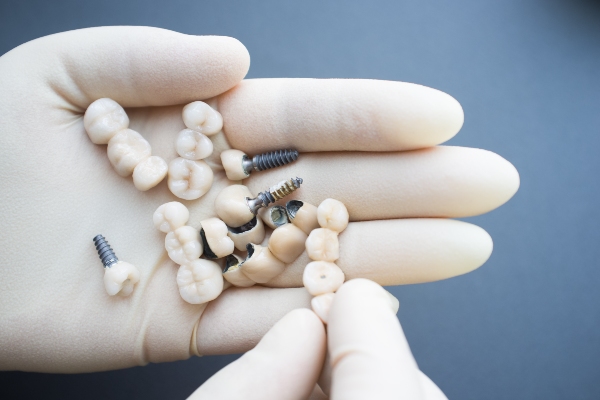 Tooth enamel protects your teeth from harmful pressure, which means ensuring it is in great shape should be a routine in your preventative dental care. If not properly taken care of, the enamel can erode and make your teeth more susceptible to things like breaking, cracking, or chipping. Ultimately, this can be very painful and cause gaps in your teeth where more bacteria can grow. You can imagine enamel being a shield for your teeth. As such, it must be properly maintained so that the ‘shield’ doesn’t break down and result in damage to the other parts of the tooth.
Tooth enamel protects your teeth from harmful pressure, which means ensuring it is in great shape should be a routine in your preventative dental care. If not properly taken care of, the enamel can erode and make your teeth more susceptible to things like breaking, cracking, or chipping. Ultimately, this can be very painful and cause gaps in your teeth where more bacteria can grow. You can imagine enamel being a shield for your teeth. As such, it must be properly maintained so that the ‘shield’ doesn’t break down and result in damage to the other parts of the tooth.
What is enamel erosion?
Enamel erosion is when the enamel surrounding your tooth begins to break down. Since this is part of the tooth’s necessary protection, this can mean you experience more sensitivities or dental issues. Many parts of our body will naturally heal themselves or go into a ‘repair mode’ when damaged. However, dental enamel does not have that capability. Any damage done to the enamel will be permanent and cannot be repaired organically by the body. Erosion can occur when acidity impacts the teeth. Foods and beverages such as soft drinks, candy, and sweet or sour foods can encourage bacteria to grow, which will break down your enamel. Other aspects, such as medications, alcohol, acid reflux, or dry mouth, can also cause erosion.
Prevention
Thankfully, there are several things you can do for preventative dental care for your tooth enamel. To begin with, you can try to cut or limit the number of sugary foods you consume. For example, if you typically drink several soft drinks a day, try to cut them down to one or two. Highly acidic foods such as lemons or citrus can also be hard on the enamel. Using a straw may help mitigate the sugar directly hitting your teeth; however, you should continue to brush about an hour afterward.
Don’t forget your water! Water can help wash any unwanted germs out of your teeth. Not only is this generally a great habit to have, but it can keep your enamel in good shape. Brush your teeth twice daily and try to use fluoride toothpaste. Fluoride can help protect your enamel and strengthen teeth. If you have certain sensitivities, you can also get toothpaste to address those. Your dentist may suggest certain products to address any dental issues you may have or may be able to recommend products that are most effective at protecting enamel.
Continue regular dental checks
Your dental appointments should be every six months to allow the provider to look at your teeth and gum condition. Signs of enamel loss include sensitivity to hot and cold stimuli, discoloration, cracks, or chips. If you have a loss of enamel, they may suggest getting a crown or veneer. The best thing you can do for preventative dental care is to brush regularly, avoid acidic foods, and follow up with your dentist as suggested.
Request an appointment or call New York Dental Office at 212-548-3261 for an appointment in our New York office.
Recent Posts
Preventative dental care has long been the focus of dentists and patients alike. Taking proactive steps to protect your teeth and gums not only helps you prevent tooth decay and gum disease but can also decrease your risk of developing other illnesses such as heart disease, stroke, cancer, and diabetes. Here’s how oral health affects…
If you are new to preventative dental care, you may not know the importance of taking care of your teeth. It is easy to become overwhelmed with all the advice available for toothpaste and dental floss, but there are a few simple things that will go a long way in helping to prevent problems down…
Screening for oral cancer is an important part of preventative dental care. Unfortunately, oral cancer is a disease that is not often talked about. Very few events support oral cancer research and awareness, even though oral cancer takes one life every day in the United States. Many people do not seek or receive treatment until…



